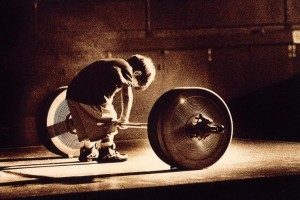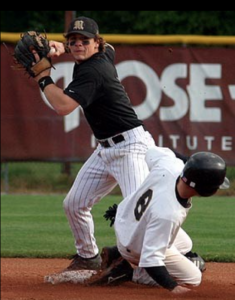My son was recruited by his coach and offered a roster spot last summer. He starts school in three weeks! Any tips on what he should expect during fall ball? I've heard nothing is a given in D3, and coaches usually bring in a handful of walk-ons for competition. Other than common sense rules (listen, be respectful, show up for class, show up for "optional" workouts, show up early for everything, just show up!) are there do's, don'ts, precautions or best practices that he should know to secure his spot on the team? Thanks in advance for your wisdom, and enjoy the journey!
Replies sorted oldest to newest
Congrats on your son making the next step in his journey. Depending on the program the only difference between D3's and D1's are the practice times and the flexibility offered by D3's on class interference and typically the practice start time is a little later in D3's vs D1's. At my son's program the coaching staff just expected the kids to get their work in. If they had a class conflict, let the coaches know, and figure alternative time to get the work done.
He should talk to the coaches in advance and find out what times they have their practices and try to schedule his classes around them. For STEM majors this is not usually possible, but he should at least be aware of the preferred times for practice.
D3's are really no different then D1's in the sense that the best 9 play, and best pitchers pitch. Fall is the time to make an impression on the staff and teammates. A good fall will help him break into the lineup in the spring.
Again congrats on your son being able to continue to play. I second BOF. D3 is no different than D1 in that the the coaches expect you to put in the time attend everything unless a class conflict and BE ON TIME. D3 or D1 it is still more serous and everyone wants to win. Be the first on the field and the last off, first impressions go a long way., all that is true. As far as who is brought to the fall and class conflicts, that varies by team. My D3 older son's team did not bring in any more than would be on the team. His coach does not over recruit but there are a few kids who are not recruited who have tried to earn a spot and coach was fair to give them a chance. It's an academic D3 so most of the athletics are held after the scheduled class and labs.
Some coaches do routinely bring in many guys and whittles them down for the spring. Every coach has their own philosophy on recruiting and what it takes for them to win. I have a friend whose son is at a D3 where many more kids showed up on the fall than he (the player) was expecting. So again much depends the coaching philosophy and the relationship between the athletic dept. and the faculty.
No matter how many athlete's are there, be ready to compete.
Show up in really good shape. Use the time left to be sure he is in the best shape he can be. He does not want to be one of the players showing up with no stamina. And it also shows how serious he is. Coaches will notice if he keeps up withbhis older teammates.
Make sure he understands, that the coaches will notice the company he keeps. Many teams have clicks, or groups, that prepare differently. There will be older guys that may not have ever won a starting job and may be jaded. He wants to avoid those guys. Hang with the guys who continue to compete, and don't gripe, or blame others.
Keep up on his classes and maintain his grades. For my son this was very important. If you have merit aid at many schools you have to maintain a certain average after your sophomore year. That is easier to do, if you do well your Freshman year. As classes get harder, it is easier to maintain a good GPA, if you did well early. When you are taking Organic chemistry, and struggling, if you are already well above the minimum GPA, it is more forgiving,big you get a C.
Good luck.
One of the biggest differences between D1 and D3 athletics is the level of academic support that the program provides to the athletes. D1 programs have money invested in their scholarship players and most have structured study halls & mandatory tutoring sessions (if necessary) in order to insure eligibility. That is not the case at most D3 programs. D3 coaches expect their players to take care of their classwork (and grades) without any hand-holding or regular monitoring. For 18 year old kids, this is more realistic for some than others. All significant programs (at every level) over-recruit, but none more so than D3. Tuition is money, and D3 schools use athletics to lure kids into the school that may have little chance of making a roster. So be prepared to compete. Being recruited to a D3 school is an opportunity to go out and prove yourself every day. (That is true for any program, by the way). It's not a validation that you have made it. Kind of like the real world in that respect.
Show up early, not on time. I've seen D3 players who show up 5 minutes late being punished by being made to run for 2 straight hours
One of Sons' Showcase team snippet & college nugget, "If you're on time, you are late!" Show up 20-25 minutes early for everything, and I mean everything. My son showed up 10 minutes early for an exam (Engineering Dept.) and most of class already there & taking the test. Think about it, the extra time with a class & on field, gives you a chance to compose your thoughts & mentally prepare yourself for...what's next...what do I have to do to succeed in this situation. The mental grind in college is tremendous. Keep stress level down, control what you can & stay healthy!!!
Yep, the old adage I always heard was 10 minutes early is 5 minutes late.
Super Groovy posted:My son was recruited by his coach and offered a roster spot last summer. He starts school in three weeks! Any tips on what he should expect during fall ball? I've heard nothing is a given in D3, and coaches usually bring in a handful of walk-ons for competition. Other than common sense rules (listen, be respectful, show up for class, show up for "optional" workouts, show up early for everything, just show up!) are there do's, don'ts, precautions or best practices that he should know to secure his spot on the team? Thanks in advance for your wisdom, and enjoy the journey!
As BOF stated there is very little that separates D3 from D1 or any D for that matter. It all a grind. My son attended a D1 school that looks like a D3 in many respects....it is kind of like a hybrid between the two. The bottom line is your son is going to challenged in so many ways, and there are going to be many, many distractions. Parties, girls, alcohol & drugs, etc...the list is very long as you probably know. My advice would be to show up in the best shape possible and stick to his studies, baseball and find an upper classmen mentor on the team. His organizational skills, time management skills, and priorities are going to be tested in the first semester. The first few weeks may appear easy at first....don't be fooled because the school work doubles and the baseball coaches demands get even greater. Most of them figure it out after they've felt like they've been run over by a "bus" a few times. Fall ball is when you try to earn your spot on the Spring travel team as not everybody travels to away games. Keep your eyes on the prize!
Good luck!
As usual, great info by others. One thing I've seen with D3's - some start baseball activities right away as do most programs and some allow students to get acclimated to school for a period of time (I've seen as much as 3-4 weeks). Son should know what the program will be with his school.
Sometimes, it's just student/assistant driven conditioning to start. So, regarding conditioning, in addition to showing up in shape, it is a good idea for player to ask the HC now if there is a specific conditioning program he wants him working on. If it matches up with the fall conditioning, this will put him ahead as far as being in shape specifically to the routine the players will be doing.
Also, once baseball activities start, teams tend to jump right into competition with intersquads. Player should be mentally and physically ready to compete from day 1. Find out what facilities/cages will be accessible to players before and outside of practice and when. Partner up and use them. If school doesn't start baseball activities right away, don't let that deter. Player should be taking cuts, reps, etc. Be resourceful and forceful. Get the edge. Don't settle for earning your roster spot. Show everyone you are serious about competing for a starting/contributing spot NOW!
IIRC D3's also have a limited number of fall practice days. For some reason 16 sticks in my mind. That's days the coach can run things - but he also relies on captains practices and (ahem) mandatory lifts with strength coaches. My son's D3 would end their Fall season w/ a scrimmage against a nearby D1 team - three 6 inning scrimmages. Might be the first time you see your son play all fall which is a very different experience for many (if a parent shows up at every practice, the coach will notice and figure out who you are.... whether it helps or hurts perhaps depends on the coach or maybe how much $$$ you could donate to the program ).
Like others have said - be prepared, work hard, keep your eyes, ears, and mind open at all times - never forget to watch your back. In the Fall, the freshman are the "next best thing" until they prove otherwise. Oh and next Fall, guess what there's a whole new crop of "next best thing's" showing up and the coach is all too happy to tell some lazy upperclassman to work harder because there's some freshman gunning for his position.
Great advice here once again. My son is transferring from D2 to D3 this year so really appreciate what has been written. Coach did say 16 days of practices under his supervision for the fall with all other activities being self directed but facilities are even better at the D3 than they were at the D2 so junior will be taking advantage of that while acclimating to the new environment. The grind continues but when it is all you know and all you want, it isn't so much a grind as it is a lifestyle commitment.
Good luck to all incoming and continuing student athletes. Get after it....
saw this on twitter, long but powerful, link below.
 There is a lot of excitement and a little fear of not knowing exactly what to expect. This is great and completely normal. It will be the most fun you have had in your entire life. You will meet your best friends, form great memories, win a ton of baseball games, and find your passion in life. This passion will lead you to coach amazing players, work for great people, and eventually take a job that allows you to meet your beautiful wife. This will all come from the next four years. Congratulations!
There is a lot of excitement and a little fear of not knowing exactly what to expect. This is great and completely normal. It will be the most fun you have had in your entire life. You will meet your best friends, form great memories, win a ton of baseball games, and find your passion in life. This passion will lead you to coach amazing players, work for great people, and eventually take a job that allows you to meet your beautiful wife. This will all come from the next four years. Congratulations!
 improved. You are going to meet new people, live in a new environment, and will be completely responsible for yourself. This is fun and exciting. But you also are responsible to live up to your end of the bargain. You are here to be a student-athlete. That means you have to get good grades and nobody cares if you struggle anymore academically. They will just get someone else. You have to get your school and baseball work in because nobody owes you anything on the field or in the classroom. The deal was you would do BOTH.
improved. You are going to meet new people, live in a new environment, and will be completely responsible for yourself. This is fun and exciting. But you also are responsible to live up to your end of the bargain. You are here to be a student-athlete. That means you have to get good grades and nobody cares if you struggle anymore academically. They will just get someone else. You have to get your school and baseball work in because nobody owes you anything on the field or in the classroom. The deal was you would do BOTH.




- Sit in the front.
- Sit there every single day.
- Say “hi” when you walk in.
- Don’t look like you just got out of bed.
- Get your work done on time.
- Come up with good questions about their lecture or your work.






Very good and very important post Old School. Thank you.
Thanks for posting the message, it is powerful. I look forward to sharing it with my son tonight!
Another question for D3 parents:
Did any of your kids work at school?
Included in our kid's FA packages is fairly small sum for work study. Assuming minimum wage it would work out to 6 or 7 hours per week. I'm thinking he may not like it, but he can probably handle it ok first semester, especially if the job is something like desk at the gym or library so he can study some of the time he's on duty, but that the pressure would be too great during the spring.
Any experience with this?
Thanks for the post, Old School!
Will certainly come in handy very soon!
-DD
JCG posted:Another question for D3 parents:
Did any of your kids work at school?
Included in our kid's FA packages is fairly small sum for work study. Assuming minimum wage it would work out to 6 or 7 hours per week. I'm thinking he may not like it, but he can probably handle it ok first semester, especially if the job is something like desk at the gym or library so he can study some of the time he's on duty, but that the pressure would be too great during the spring.
Any experience with this?
Some programs handle it different ways. Some of the schools said they would have a job working on the field or other baseball related/athletic stuff. Were my son went thatbwas not an opportunity to participate in. They had a job fair and son would have had to skip class to get there early. Not sure but there may have been more students, than opportunities. For him he preferred to spend his time studying than working. At least that is what he told me.
So as many things your mileage may vary.
Work study for athletes is usually opposite season work. Eg. My D-3 LHP works as an usher (or whatever) in their very packed stadium during the football season. It could also have been work for a professor if his schedule had permitted it.
JCG posted:Another question for D3 parents:
Did any of your kids work at school?
Included in our kid's FA packages is fairly small sum for work study. Assuming minimum wage it would work out to 6 or 7 hours per week. I'm thinking he may not like it, but he can probably handle it ok first semester, especially if the job is something like desk at the gym or library so he can study some of the time he's on duty, but that the pressure would be too great during the spring.
Any experience with this?
Yes... Let's face it there are many work study jobs that allow for plenty of reading time on the job. It's not 9-330 M-F at school followed by 4 hours a couple nights a week at some retail job. The pay depends on the job, but I don't recall it being minimum wage type scale at a (sorry, not trying to be political, but) liberal leaning school. Maybe my kids were fortunate. Also, remember that work study money is fixed. That is - if you get 2K, then it's 2K for the whole year. So in your off-season you work more hours, then in season you work less hours so you're good. The boss knows the deal and makes adjustments to the schedule as there is always someone who is not in season and there's always more workers available. I had one son work in career services - excellent gig BTW - forced him to know where it was from freshman year! He was a football player, so in the fall it's less busy there, but in the spring well he get all his hours in. My other son (baseball) ended up in a "job share" type thing where he'd work more in the Fall answering phones for some department, while another student worked the Spring.
